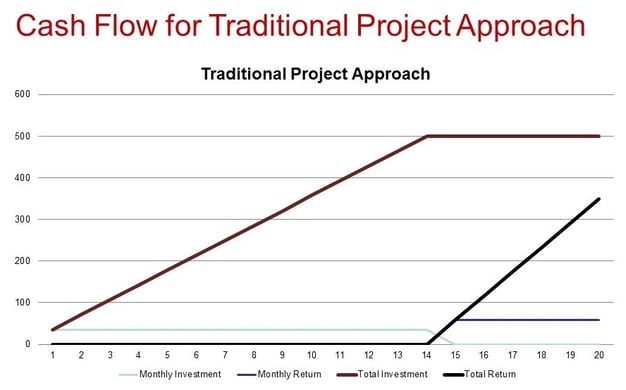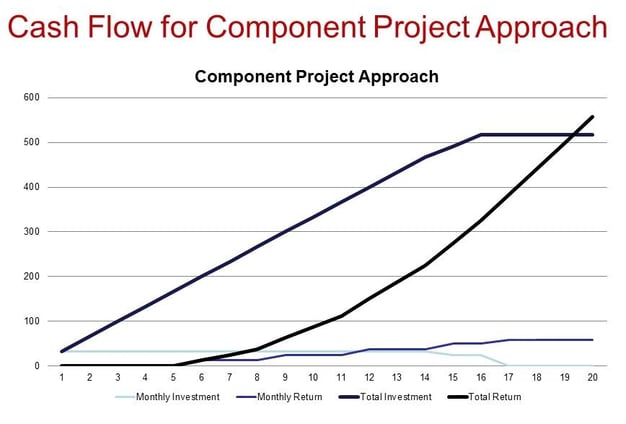This guest post was authored by Dave Loesche, director of DCSNext, MAVERICK Technologies.
Hold the pickles, hold the lettuce. Many of us are familiar with the opening lyrics to that famous song that let us know there was an alternative to the fast food that was being served up under the Golden Arches. Sometimes alternatives are a matter of taste and sometimes they are a matter of convenience and sometimes they can make a real improvement in the way we think  about operating our businesses. When it comes to MES, it’s usually not about taste or convenience. It’s about making the right business decisions.
about operating our businesses. When it comes to MES, it’s usually not about taste or convenience. It’s about making the right business decisions.
I’ve observed that practically all manufacturers have production and operational issues that can be effectively addressed through the use of plant floor data, information, and knowledge that manufacturing IT solutions can deliver. So it’s somewhat surprising there hasn’t been more investment made in these solutions. In my dealings with customers who have implemented, or are investigating implementing manufacturing IT solutions, they mention several reasons for their hesitation to invest in manufacturing IT solutions. I’ve heard reasons such as:
- The cost of entry for most manufacturing IT solutions and their related TIC/TCO is beyond the means of most mid-tier, small and multi-unit manufacturing operations. And of the companies that have implemented these solutions, many have not experienced the expected ROI.
- The systems are inflexible, requiring production processes be changed to fit the software, not flexible enough for continuous improvement and change.
- Customers expect the solution to reproduce functionality that exists or may be coming into the plant.
- Change management becomes a serious issue with ripple effects that can have very serious ramifications.
Interestingly, most of these comments have been associated with platform-based solutions. Developers of manufacturing IT platform software have heavily promoted the benefits of implementing their platform-based approaches to MES. However, instead of providing a system that the customer can use to solve their business issues, these solutions present limitations to realizing the true power of manufacturing IT. And when this realization becomes apparent, most manufacturers are compelled to look for alternatives, or worse do nothing.
Component MES
Emerging as an alternative approach to platforms solutions is component MES. Component MES is based on implementing point solutions that target specific operational issues such as OEE, SPC, LIMS track and trace, and genealogy. Component MES allows you to determine how you want to implement MES. It’s allows you to have MES your way.
Let’s look at one of the biggest hesitations to implementing MES: cost. In terms of cost alone, a recent study showed the difference in cash flow/payback of traditional platform-based MES approaches compared to component based MES approaches. These projections demonstrate how manufacturers can justify the investment in manufacturing IT by implementing component MES solutions.
Manufacturers will see a significantly shorter timeframe to realize the cost benefits of incorporating manufacturing IT in their businesses by using component MES-based approaches. This is attributable to:
- Lower initial and total investment required to achieve integrated MES by not replacing existing working functions
- Pace of investment is smaller meaning each investment is proven business value before committing to the next investment
- A self-funding approach through incremental implementations brings benefits online faster
- Highest return or need areas are implemented first bringing highest value with the initial implementation
- Reduced training and change management expense as it is not a wholesale replacement requiring extensive training
Component MES gives you the alternatives to do it your way.
Enterprise batch record
As described previously, significant improvements can be realized by pursuing a component MES approach to manufacturing IT. The full benefit of component MES however is realized when that functionality extends across the enterprise. This is the function of the enterprise batch record. The enterprise batch record integrates and consolidates the key production data from the component MES solutions into a comprehensive record typically required to solve business problems, improve efficiencies and reduce costs, including:
- OEE
- Product Tracing and Genealogy
- Resource Allocation and Status
- Performance Analysis
- Process Management
- Quality management
- Labor Management
- Dispatching Production
Coupled with component MES, enterprise batch records provide manufacturers with a cost efficient, non-disruptive (to their existing installed base of technology) manufacturing IT solution that is scalable and allows manufacturers to incrementally implement the component MES functionality they identify as necessary and beneficial to improve operations management in their manufacturing environments. The enterprise batch record allows manufacturers to take full advantage of component MES.
We all like to have alternatives. I would really enjoy hearing your experiences exploring and implementing alternative MES solutions. What alternative approaches have you used to incorporate manufacturing IT in your operations?
About the Author Dave Loesche serves as a MAVERICK Industry Business Leader with a focus on MAVERICK’s Food & Beverage/Consumer Products business segments. In this role, Dave is responsible for aligning MAVERICK’s service offerings and resources to address the unique automation and business challenges experienced by companies that operate in the food & beverage/consumer products industries. Dave joined MAVERICK in 2000 after directing the systems integration group for a major manufacturer of industrial product ID systems. He previously served in business development and project management roles. He earned a bachelor's degree in engineering from Southern Illinois University Carbondale and an MBA at Webster University. He holds a certification as a Project Management Professional (PMP).
Dave Loesche serves as a MAVERICK Industry Business Leader with a focus on MAVERICK’s Food & Beverage/Consumer Products business segments. In this role, Dave is responsible for aligning MAVERICK’s service offerings and resources to address the unique automation and business challenges experienced by companies that operate in the food & beverage/consumer products industries. Dave joined MAVERICK in 2000 after directing the systems integration group for a major manufacturer of industrial product ID systems. He previously served in business development and project management roles. He earned a bachelor's degree in engineering from Southern Illinois University Carbondale and an MBA at Webster University. He holds a certification as a Project Management Professional (PMP).





